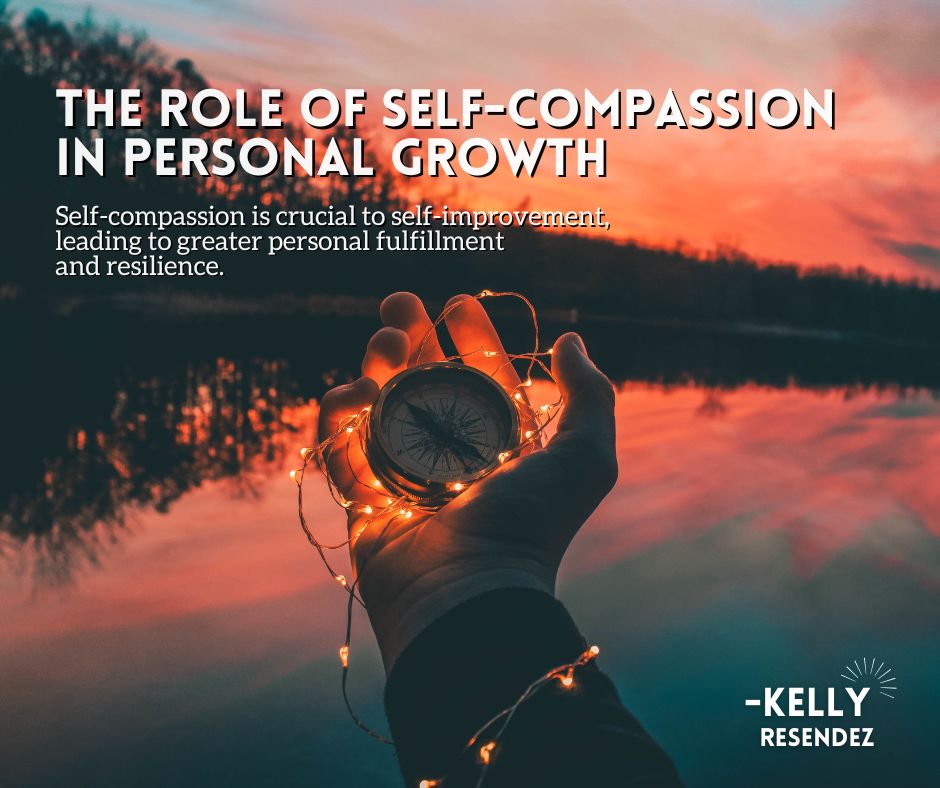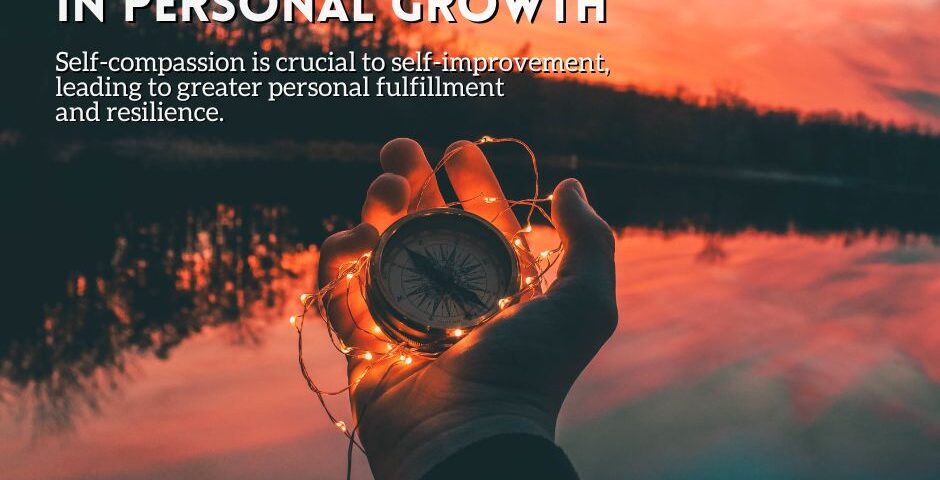
Building Emotional Resilience in the Face of Change
December 2, 2024
How to Build Boundaries Without Guilt: A Guide for Women Leaders
January 13, 2025Self-compassion is crucial to self-improvement, leading to greater personal fulfillment and resilience.

Most of us are trying to improve something in our lives: leveling-up our skills at work, managing our money better, enhancing our relationships with loved ones, and even dropping those lbs. as a new year’s goal.
But in our relentless pursuit of self-improvement, it’s so also too easy to fall into the trap of self-criticism. We push ourselves harder, set higher expectations, and our inner voice becomes our harshest judge. Then when we stumble (as we always will!), we too-often respond with frustration, self-doubt, or even shame.
But what if I told you there’s a better way? A way that feels lighter, more sustainable, and more empowering—one that fosters growth not through force but through grace?
A way that also will be far more effective in actually achieving those self-improvement goals.
That better way is self-compassion.
Why self-criticism holds us back
Many of us mistakenly believe that being hard on ourselves will motivate us to do better. After all, if we hold ourselves to impossibly high standards, we’ll be forced to rise to the occasion, right?
Unfortunately, and in reality, self-criticism often has the opposite effect. Instead of propelling us forward, it drags us down. It erodes our confidence, feeds negative narratives, and traps us in cycles of stress and resistance.
When we constantly criticize ourselves, we create an environment where fear of failure takes center stage. We focus on the wrong thing! Therefore, growth becomes a stressful process driven by the avoidance of mistakes rather than the pursuit of progress. This mindset robs us of joy, creativity, and the ability to see opportunities for what they are: lessons, not setbacks.
So, what is self-compassion, anyways?!
Self-compassion is the practice of extending kindness, understanding, and patience to ourselves—especially when we fall short of our own expectations. I like to think of it as treating ourselves exactly the way we would treat your best friend!
For instance, imagine your best friend coming to you, heartbroken over a mistake or failure.
Would you berate them? Call them a failure? Tell them that they’ll never be able to get it right?
Of course not! You would comfort them, encourage them, and remind them that they are still worthy and capable of growth. Essentially, you would believe in them and help them to do the same.
So why don’t we do the same for ourselves?
Kristin Neff, a leading researcher on self-compassion, breaks it down into three components:
- Self-Kindness:
Being warm and understanding toward ourselves when we suffer or fail, rather than harshly critical.
- Common Humanity:
Recognizing that everyone makes mistakes, and that imperfection is part of the human experience.
- Mindfulness:
Allowing ourselves to experience difficult emotions without exaggerating or suppressing them.
Self-compassion can be a catalyst to growth
When we fully embrace self-compassion, personal growth becomes less about perfection and more about progress. The whole point is to move forward, not drag ourselves back at every opportunity! What good does that do?
That new perspective creates a safe space for us to take risks, step outside of our comfort zones, and, yes, sometimes fail—because failure no longer feels like the end of the road. Instead, it becomes a stepping stone.
Self-compassion allows us to:
- Bounce back faster:
When we respond to setbacks with kindness, we recover more quickly and are more likely to try again.
- Build resilience:
We develop an inner strength that isn’t dependent on external validation. We KNOW we can endure, make course corrections, and keep going.
- Focus on what truly matters:
Self-compassion frees us from the mental energy spent on shame or self-doubt, allowing us to focus on our goals and growth. Trust me when I tell you that those negative emotions are SO heavy and should be part of your journey – they don’t deserve to make it to the finish line with you!
A few practical ways to cultivate self-compassion
If this all feels foreign to you, don’t worry. Self-compassion, like any skill, can be practiced and strengthened over time. Here are a few ways to get started:
- Shift your self-talk: Notice when you’re being harsh with yourself. Pause, and reframe your thoughts as if you were speaking to a dear friend. Replace, “I’m such a failure” with “I’m doing my best, and that’s enough.”
- Embrace imperfection: Remind yourself that no one gets it right all the time. Mistakes are not evidence of your inadequacy—they’re proof that you’re showing up and trying.
- Practice mindfulness: Allow yourself to acknowledge difficult emotions without judgment. It’s okay to feel disappointed, sad, or frustrated. Let those feelings be there, and then let them pass.
- Write yourself a compassion letter: Write a letter to yourself offering support and understanding for something you’re struggling with. Imagine a wiser, more compassionate version of you guiding you through it.
- Celebrate small wins: Instead of fixating on what’s left to do, celebrate the progress you’ve already made. Every step counts, no matter how small.
Fulfillment through self-compassion
When we replace self-judgment with self-compassion, something beautiful happens: we begin to trust ourselves. We trust that we are capable of learning, growing, and thriving. We stop tying our worth to external outcomes and embrace who we are—messy, imperfect, and full of potential.
Personal growth is not about becoming someone else; it’s about becoming more of who you are. It’s a journey that requires patience, love, and understanding. Self-compassion is the key that allows us to move forward with courage and grace.
So, as you continue on your path of growth, remember this: You don’t have to be perfect to be worthy of love, success, or fulfillment. You just have to be willing to show up, be kind to yourself, and keep going.
Because if you ask me, you are enough, just as you are.
– Kelly Resendez



